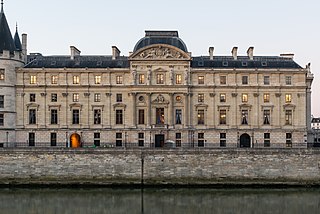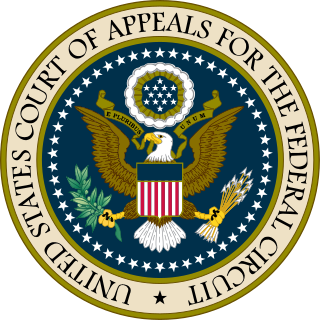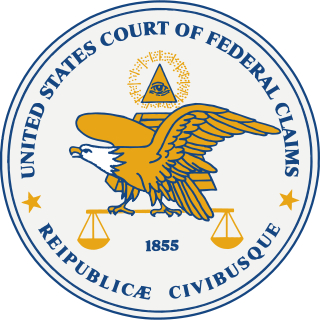Jurisdiction is the legal term for the authority granted to a legal entity to enact justice. Colloquially it is used to refer to the geographical area (situs: location of the issue. In federations like the United States, areas of jurisdiction apply to local, state, and federal levels.
In the United States, a state court has jurisdiction over disputes with some connection to a U.S. state. State courts handle the vast majority of civil and criminal cases in the United States; the United States federal courts are far smaller in terms of both personnel and caseload, and handle different types of cases.
A county court is a court based in or with a jurisdiction covering one or more counties, which are administrative divisions within a country, not to be confused with the medieval system of county courts held by the high sheriff of each county.

The Court of Cassation is one of the four courts of last resort in France. It has jurisdiction over all civil and criminal matters triable in the judicial system, and is the supreme court of appeal in these cases. It has jurisdiction to review the law, and to certify questions of law, to determine miscarriages of justice. The Court is located in the Palace of Justice in Paris.

A justice of the peace (JP) is a judicial officer of a lower or puisne court, elected or appointed by means of a commission to keep the peace. In past centuries the term commissioner of the peace was often used with the same meaning. Depending on the jurisdiction, such justices dispense summary justice or merely deal with local administrative applications in common law jurisdictions. Justices of the peace are appointed or elected from the citizens of the jurisdiction in which they serve, and are usually not required to have any formal legal education in order to qualify for the office. Some jurisdictions have varying forms of training for JPs.

The term magistrate is used in a variety of systems of governments and laws to refer to a civilian officer who administers the law. In ancient Rome, a magistratus was one of the highest ranking government officers, and possessed both judicial and executive powers. In other parts of the world, such as China, a magistrate was responsible for administration over a particular geographic area. Today, in some jurisdictions, a magistrate is a judicial officer who hears cases in a lower court, and typically deals with more minor or preliminary matters. In other jurisdictions, magistrates may be volunteers without formal legal training who perform a judicial role with regard to minor matters.

Oral arguments are spoken presentations to a judge or appellate court by a lawyer of the legal reasons why they should prevail. Oral argument at the appellate level accompanies written briefs, which also advance the argument of each party in the legal dispute. Oral arguments can also occur during motion practice when one of the parties presents a motion to the court for consideration before trial, such as when the case is to be dismissed on a point of law, or when summary judgment may lie because there are no factual issues in dispute.

A sheriff court is the principal local civil and criminal court in Scotland, with exclusive jurisdiction over all civil cases with a monetary value up to £100,000, and with the jurisdiction to hear any criminal case except treason, murder, and rape which are in the exclusive jurisdiction of the High Court of Justiciary. Though the sheriff courts have concurrent jurisdiction with the High Court over armed robbery, drug trafficking, and sexual offences involving children, the vast majority of these cases are heard by the High Court. Each court serves a sheriff court district within one of the six sheriffdoms of Scotland. Each sheriff court is presided over by a sheriff, who is a legally qualified judge, and part of the judiciary of Scotland.

The government of Maryland is conducted according to the Maryland Constitution. The United States is a federation; consequently, the government of Maryland, like the other 49 state governments, has exclusive authority over matters that lie entirely within the state's borders, except as limited by the Constitution of the United States.

The United States Court of Appeals for the Federal Circuit is a United States court of appeals headquartered in Washington, D.C. The court was created by Congress with passage of the Federal Courts Improvement Act of 1982, which merged the United States Court of Customs and Patent Appeals and the appellate division of the United States Court of Claims, making the judges of the former courts into circuit judges. The Federal Circuit is particularly known for its decisions on patent law, as it is the only appellate-level court other than the Supreme Court with the jurisdiction to hear patent case appeals.

In France, career judges are considered civil servants exercising one of the sovereign powers of the state, so French citizens are eligible for judgeship, but not citizens of the other EU countries. France's independent court system enjoys special statutory protection from the executive branch. Procedures for the appointment, promotion, and removal of judges vary depending on whether it is for the ordinary or administrative stream. Judicial appointments in the judicial stream must be approved by a special panel, the High Council of the Judiciary. Once appointed, career judges serve for life and cannot be removed without specific disciplinary proceedings conducted before the Council with due process.

In Scotland a sheriff principal is a judge in charge of a sheriffdom with judicial, quasi-judicial, and administrative responsibilities. Sheriffs principal have been part of the judiciary of Scotland since the 11th century. Sheriffs principal were originally appointed by the Monarch of Scotland, and evolved into a heritable jurisdiction before appointment was again vested in the Crown and the Monarch of the United Kingdom following the passage of the Heritable Jurisdictions (Scotland) Act 1746.

The United States Court of Federal Claims is a United States federal court that hears monetary claims against the U.S. government. It was established by statute in 1982 as the United States Claims Court, and took its current name in 1992. The court is the successor to trial division of the United States Court of Claims, which was established in 1855.

The District Court of New South Wales is the intermediate court in the judicial hierarchy of the Australian state of New South Wales. It is a trial court and has an appellate jurisdiction. In addition, the Judges of the Court preside over a range of tribunals. In its criminal jurisdiction, the Court may deal with all serious criminal offences except murder, treason and piracy. The Court's civil jurisdiction is generally limited to claims less than A$750,000.
Judicial disqualification, also referred to as recusal, is the act of abstaining from participation in an official action such as a legal proceeding due to a conflict of interest of the presiding court official or administrative officer. Applicable statutes or canons of ethics may provide standards for recusal in a given proceeding or matter. Providing that the judge or presiding officer must be free from disabling conflicts of interest makes the fairness of the proceedings less likely to be questioned.

The High Court of Singapore is the lower division of the Supreme Court of Singapore, the upper division being the Court of Appeal. It consists of the chief justice and the judges of the High Court. Judicial Commissioners are often appointed to assist with the Court's caseload. There are two specialist commercial courts, the Admiralty Court and the Intellectual Property Court, and a number of judges are designated to hear arbitration-related matters. In 2015, the Singapore International Commercial Court was established as part of the Supreme Court of Singapore, and is a division of the High Court. The seat of the High Court is the Supreme Court Building.

The Tucker Act is a federal statute of the United States by which the United States government has waived its sovereign immunity with respect to certain lawsuits.
In legal terms, the right of substitution is a statutory right of all parties except the state. It is the right to change the presiding court official with or without cause.
The Circuit Court of Ireland is an intermediate level court of local and limited jurisdiction which hears both civil and criminal matters. On the criminal side the Circuit Court hears criminal matters tried on indictment with a judge and jury, except for certain serious crimes which are tried in either the Central Criminal Court or the Special Criminal Court. On the civil side the Circuit Court has a considerable parallel jurisdiction — including equitable remedies — with the High Court but normally cannot award damages of more than €75,000. The Circuit Court also hears de novo appeals from the District Court in both civil and criminal matters.
The Judiciary of Sri Lanka are the civil and criminal courts responsible for the administration of justice in Sri Lanka. The Constitution of Sri Lanka defines courts as independent institutions within the traditional framework of checks and balances. They apply Sri Lankan Law which is an amalgam of English common law, Roman-Dutch civil law and Customary Law; and are established under the Judicature Act No 02 of 1978 of the Parliament of Sri Lanka.











